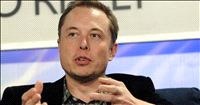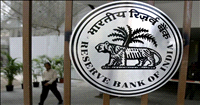UK to oppose new renewable energy target within EU
28 May 2013
The UK government plans to oppose attempts to set a new renewable energy target within the EU, a move that commentators say, jeopardise green investment of billions of pounds as also tens of thousands of new jobs.
However, by way of a sop to environment campaigners, ministers would agree to tough greenhouse gas emissions targets by 2030.
The renewable energy target for 2030 – to take over from the current goal, of generating 20 per cent of energy in the EU from renewable sources by 2020 – has been a vexed issue for government and industry.
The setting of clear targets for 2030 was opposed by chancellor George Osborne, preferring a "dash for gas" that would allow 20 or more new gas-fired power stations built over the next decade. According to green campaigners, that would be fatal for attempts to tackle climate change, and have urged to scale up ambitions on renewable energy.
Meanwhile, Ed Davey, the energy secretary, writes in the Liberal Democrat Voice that there had been a lot of talk over the last few weeks about the place of UK in Europe, but there was one thing that he hoped all could agree. He writes all needed the EU to help prevent climate change.
He says the UK being an island nation, a trading nation, dependent on the global market for prosperity – for food, for energy, for many of the products it relied on, it was not surprising that the UK was one of the first countries to recognise that significant climate change would directly affect its citizens way of life and was the first country to bind itself to the low-carbon path through the 2008 Climate Change Act.
However, acting alone would not solve the global problem, and successive governments had recognised that the best way to tackle climate change, without threatening economic competitiveness, had been to work through the EU for a global climate deal – and making sure the EU led by example.
He notes that as the climate talks in Durban in 2011 showed definitively, while negotiating with super-economies like China, India and the US, the UK was far better off negotiating as a European bloc.
This was because together the EU represented 504 million people and 25 per cent of the world's GDP, as against 63 million people and 3 per cent of the world's GDP as the UK alone. Further, the action the EU was taking on emissions meant the UK was able to negotiate from a position of authority.



















.jpg)










